My Activity reveals how much Google knows about you
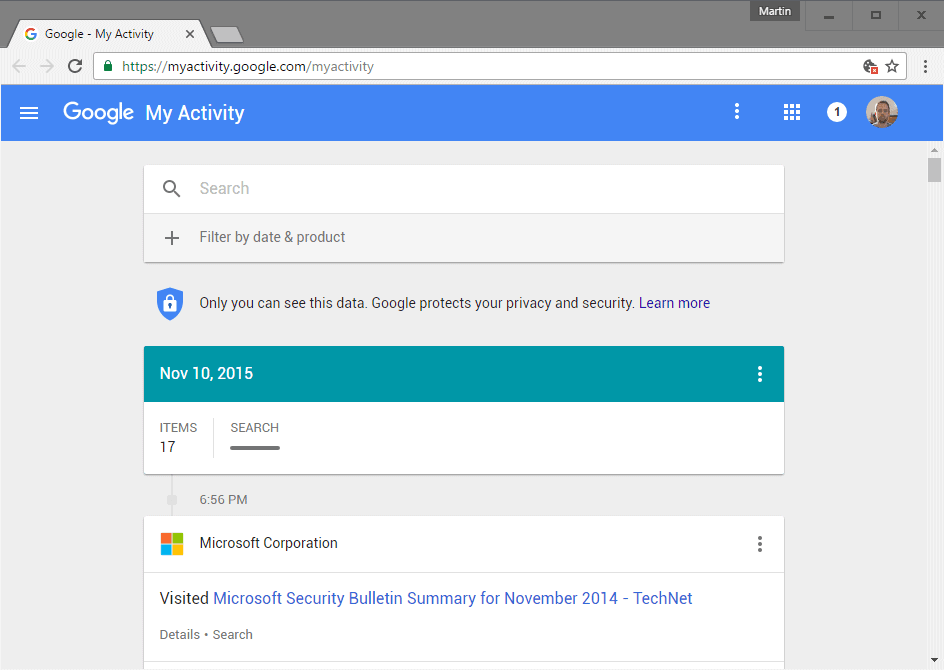
My Activity is a new, centralized service by Google that reveals how much Google knows about you as it displays the recorded Google activity history to you.
Up until now, when you wanted to know what Google knows about you, you had to use multiple tools to find out about that.
There was one for YouTube videos, another for search, a third for advertisement, a fourth for locations, and so on and so forth.
My Activity by Google combines all these in a simple chronological listing that you can go through easily.
The product is Google's latest effort to improve transparency and give users more control over (some) of the data that it collects.
Google My Activity

A short intro is displayed to you on first load that highlights the benefits of My Activity (rediscover, Google's benefit, and control).
Your Google activity is loaded afterward in a chronological stream. Entries are sorted by date, and next to them are the activity types listed that Google recorded for that date.
You may see search listed there, help, news, YouTube, or other popular Google services. A bar underneath each type highlights its weight in comparison to the other types.
Each record is listed with the time, the URL that was visited, and additional information such as search terms or URLs.
A click on the three dots next to a date displays an option to delete the record, while a click on the same icon next to a record options to delete it or display details about it.
The top features search and filter options. You may type to find specific Google records of interest, or use the filter to limit records by date or product.
Filters include YouTube, Voice & Audio, Maps, Google Now, Play, Search and others.
Note: Google made it easier recently to delete all of your search history.
Managing your Google Activity
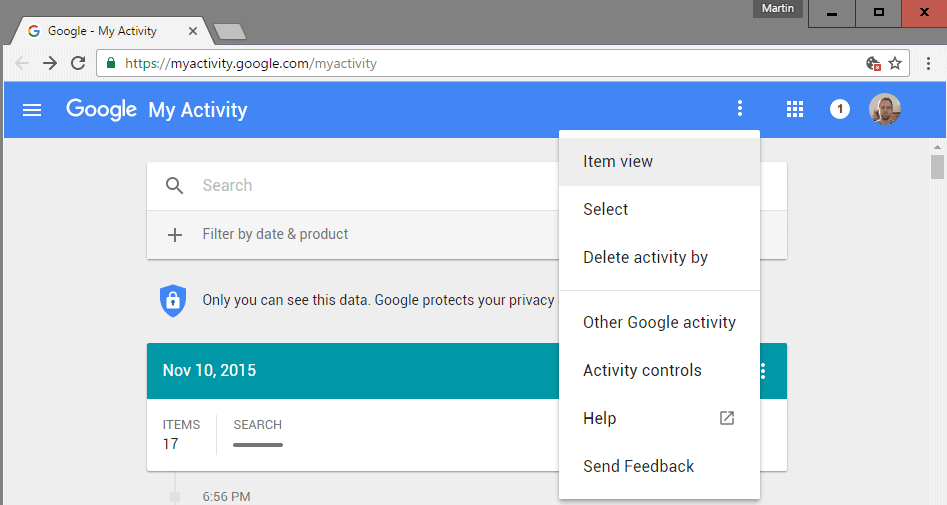
The menu at the top holds several interesting options. First, you may switch from bundle view to item view using it.
Bundle view, the default view mode, bundles related items while item view displays them individually instead.
There is also a select option to select multiple history items using checkboxes to move them to the trash at once.
Google displays a prompt the first time you delete records stating that these records help Google improve your experience when using company services.
It confirms as well that the records are deleted permanently.
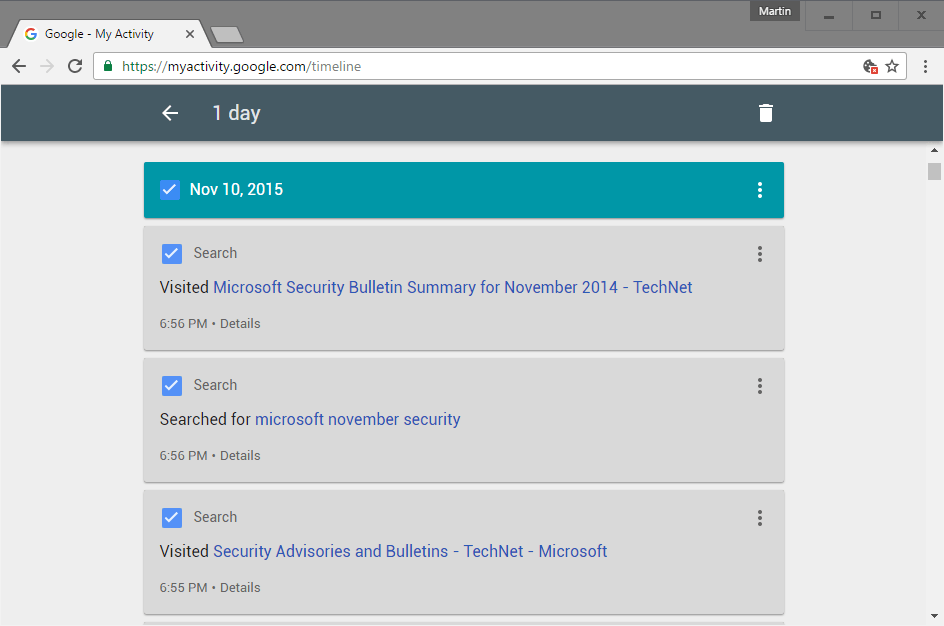
The third and final option provides you with options to delete activity by selecting time periods. You may select "all time" and other presets such as "the last 30 days", or specify a time period manually instead.
To delete Google records by type, run a search or use the filtering system instead, and select the "delete results" option from the menu instead.
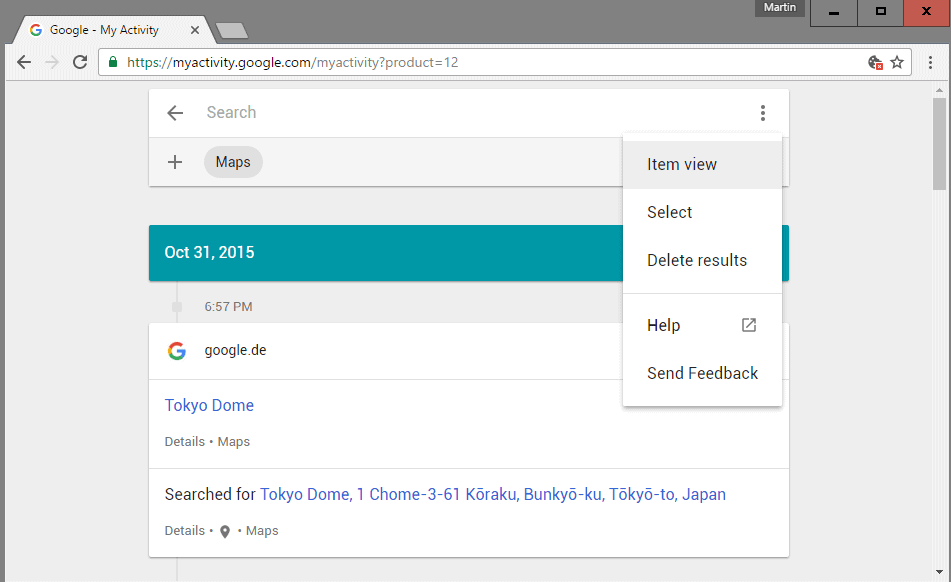
Activity Controls
The Activity Controls page lists the current status of Google products and services in regards to tracking.
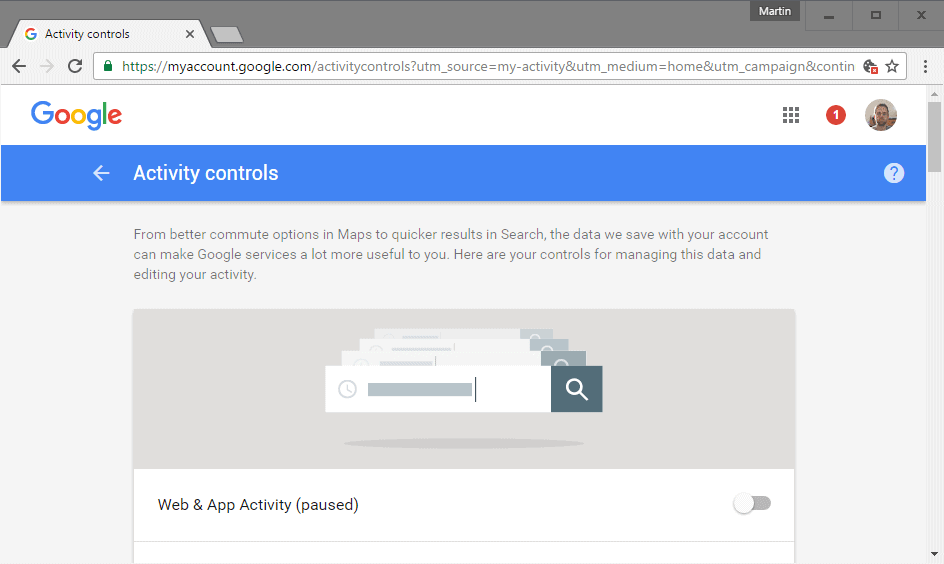
The following Google products are listed on the page:
- Web & App Activity
- Location History
- Device Information
- Voice & Audio Activity
- YouTube Search History
- YouTube Watch History
A slider next to each item toggles the status between the active and paused status. There is also a manage activity link that loads various timeline pages on Google to display the data and controls.
You may click on "Other Google activity" on the frontpage of My Activity to display links to yet even more activity and history pages.
Check out our overview of Activity Controls and its functionality here.
Control your Google ads
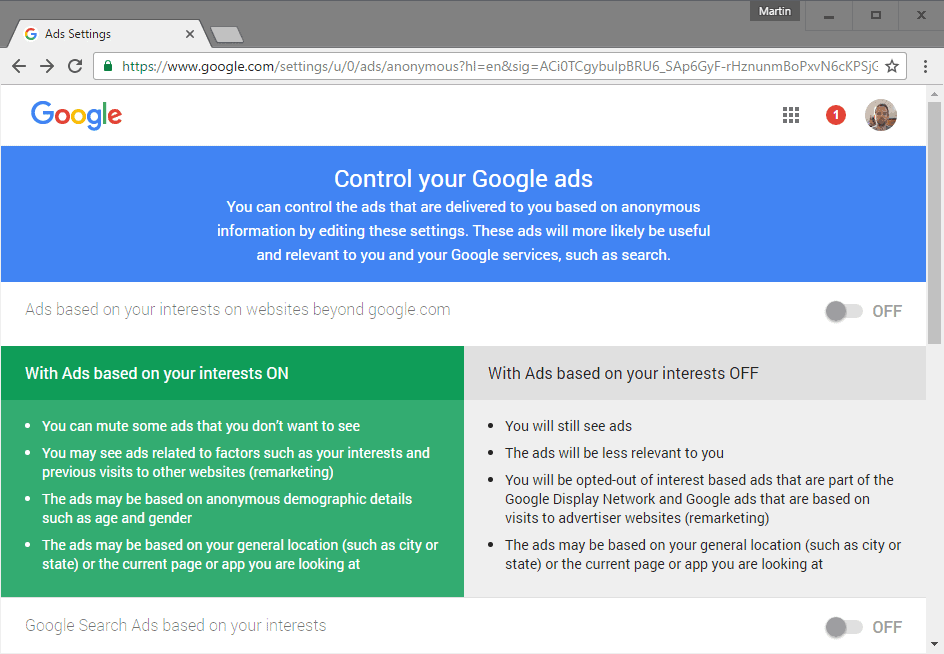
Google revamped the advertisement control pages as well. It offers two of them, one for logged in Google users and another for users who are not logged into a Google account.
The authenticated page lets you switch interests based ads on or off, and explains what they are used for and the difference between the two.
Basically, when turned on, ads will be delivered based on previous account activity while they won't be based on Google data collected about you when turned off.
The signed out page offers two controls for interest based ads. The first controls the ads experience on third-party sites, for instance those using Google Adsense, the second Google Search ads.
You may turn off both individually on the page.
Google is rolling out the updates currently which means that you may not have access to some or even all of the new tools right now. It will take some time before they are made available to all users.
Now you: Surprised about what Google knows about you?





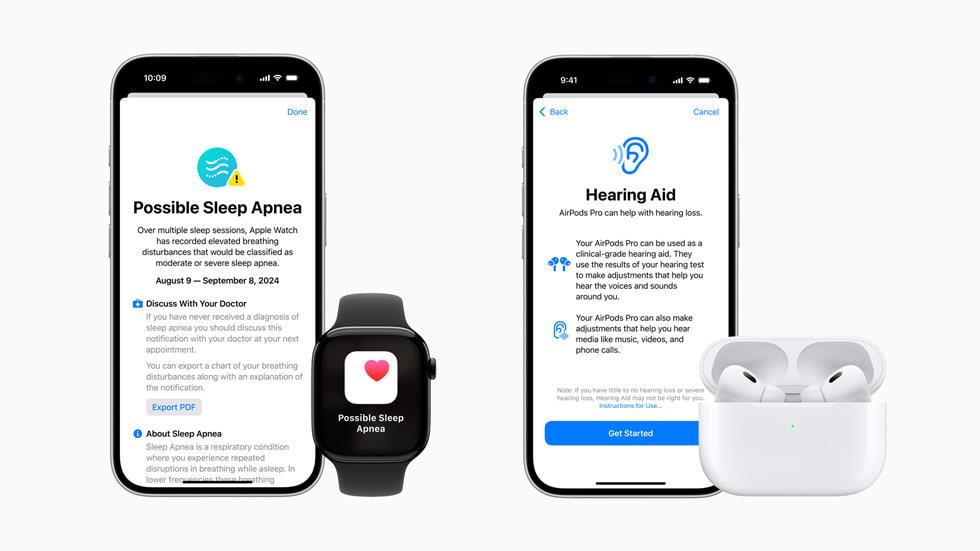

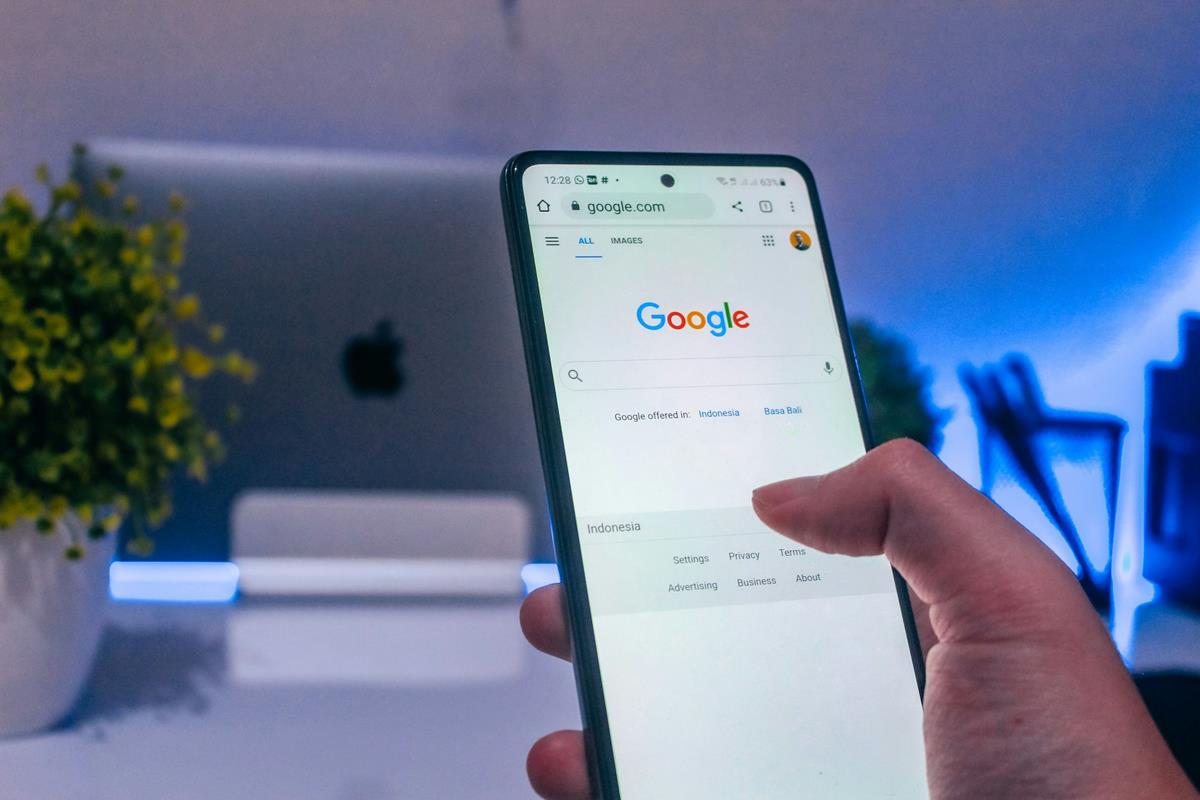
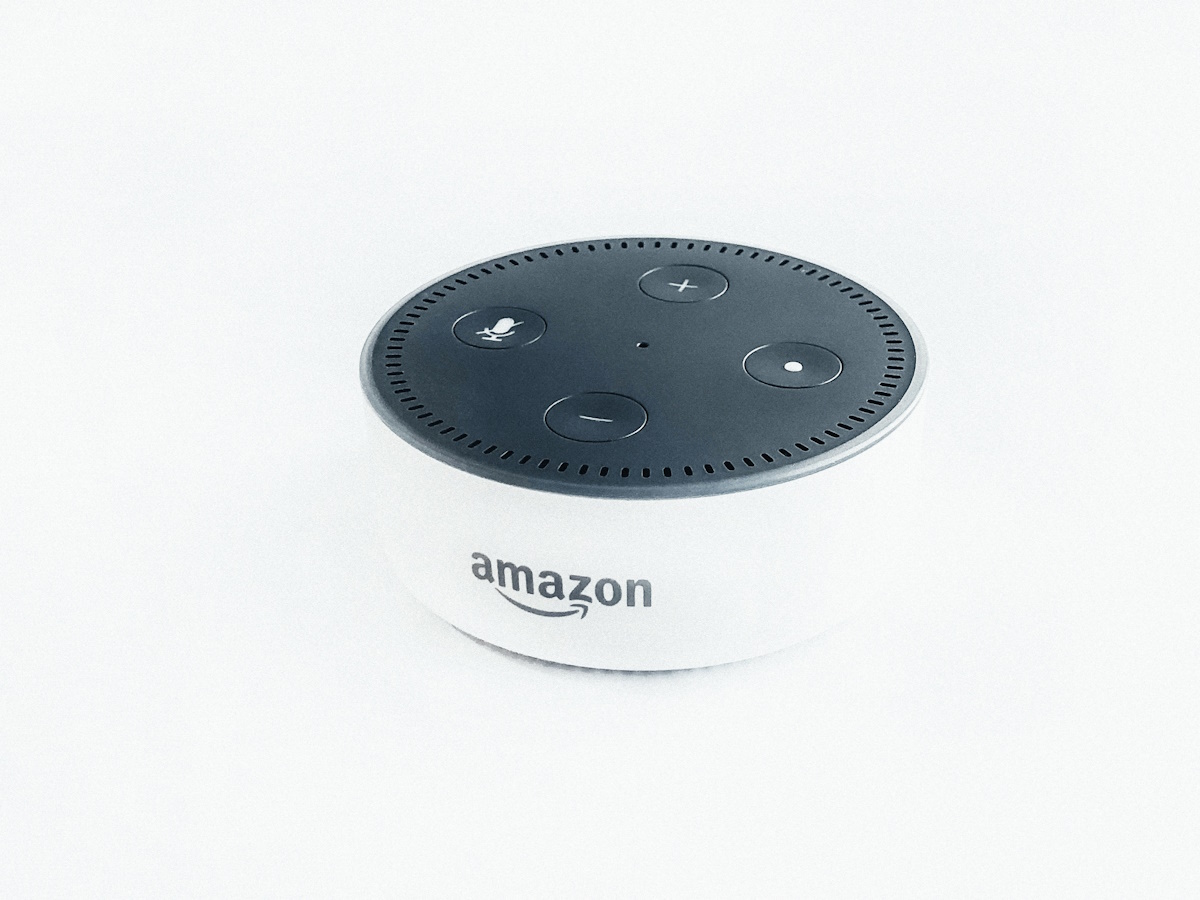
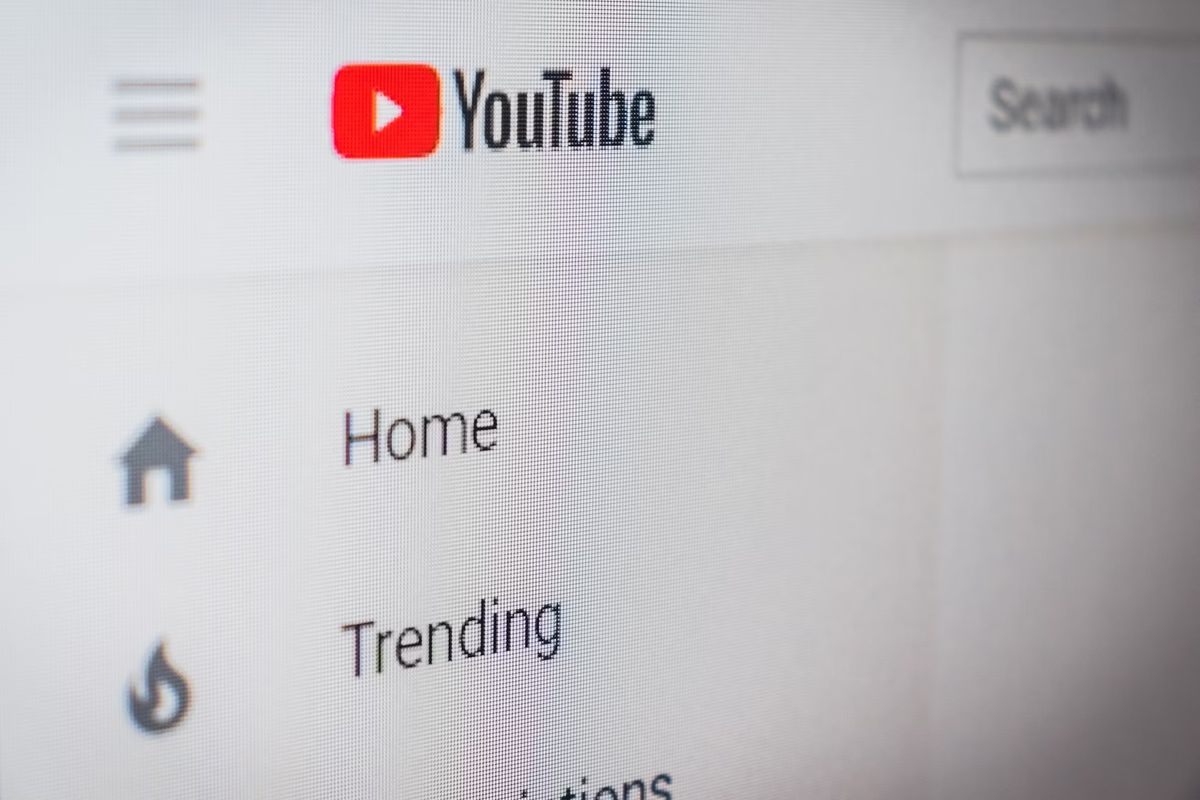












If you only knew how much data they stored you would be scared. You are an open book sold off for $12 dollars to just about anyone. Social engineering is the biggest hack of the decade and you are the product to be controlled. All the security breaches at these companies means hackers know have your persona, this greatly helps them with ID theft and credit card fraud. There are real and serious consequences to the mapping of your life. We know people like Bill Gates have no ethics. Also the 1% have been attacking our civil liberties for decades, they believe only property owners should be able to vote and believe only the rich should have say in government. They believe the masses are stupid because they are not rich. So now thanks to google and microsoft they now know everything about you. If you oppose them they have all the tools needed for the destruction of your character, Just ask Elizabeth Warren how evil and vile the 1% can be when you try to fight massive fraud like our 15 trillion dollar give away to the banksters, Stop giving a personal data weapon to the 1% that now control our government.
I knew of this function but haven’t looked at it recently. It is interesting and more complete than it was, but as others have said, they could promulgate lots more if they wanted to loose viewers of their services.
Google knows about you more than your friends and family do. :)
Mmmm…. Frankly this service is useless to me if I can only search by username. How about letting me search by IP address or browser fingerprint? Only then would I actually know what Google has on me. I don’t use Google accounts, and wouldn’t be daft enough to sign into a Google account just to view some Youtube video or perform a web search.
I, for one, have nothing but gratitude for Google. This isn’t a cure for chemobrain, but it will certainly improve the quality of my life.
Speaking as one who made her complete genome available (through the PGP), I just don’t much care about privacy. Misuse? Not worried, unless someone cracks my banking information. Everything else…well, as I said, I just don’t care.
Fortunately there are people who think as you do otherwise there wouldn’t be any Google around. But there are some who do care about their privacy and who just happen to believe that one’s privacy, at least theirs, is more important than Google. That’s life. Saying who’s right is demagogy.
Microceph 10, I don’t know. I try to distinguish what is from what is done of what is. These major technology companies you mention have innovated and have been, may still be, motivated by more than profit. I hope they are because at the end profit alone signs a decline. I think that what annoys me is more what is done with talent than talent itself. I’m afraid power, in all areas of our societies, leads to domination, be it a natural aspect of an individual or of a company, be it to beat competition : we are more in a jungle scheme than in a modern enlightened open-minded scheme built around honesty and dialog, we still are.
These companies exist, we can subscribe blindly to their concepts, we can condemn their practices, but we cannot, IMO, imagine a world where they would be, what? Forbidden?! Freedom, and from there on it’s up to each of us to accept, refuse, or blend our feelings, our principles with reality. I know how I feel about many topics but I don’t know what authority I’d have to expose them as truth. I’m rather cautious when it comes to forcing ideas, that’s what I meant when I mentioned “demagogy” in my previous post.
We’d be better off without any Microsofts, Googles, and Apples (unless you’re one of their employees or a stockholder ofcourse). Leave it up to individual companies to make the software and drivers, instead of handing control of all the world’s data to a handful of for-profit corporations with political agendas. There’s no oversight of what these companies are doing with the data. You trust the likes of Bill Gates, Eric Schmidt, and whatever dark cabal now runs Apple now that Steve Jobs is dead?
I am unable to use the sliders to turn off any/all the data collection using Activity Controls. It slides to off and you’d think it saves automatically, but when you leave the page (no save button) and go back into it, it’s all enabled again. Anyone else?
Martin, great info….always like to tighten up the ship if i can.
Link for the lazy :)
https://myactivity.google.com/myactivity
Added, thanks for that ;)
Nice to see Google giving us access to our data with them, unlike other tech giants.
Good effort by google
A lot of people these days seem to think that any data about them and their activities is their property. This is no more true now than it ever was. Any entity that a person interacts with is going to have data about the person and that interaction. Any data about the interaction itself is just as much the property of the entity, esp. when it’s providing some service for the person. All of this “right to be forgotten” BS is just that: BS.
This is just what google wants you to think they have – they actually have far far far more. And I bet the option to delete only flags it as deleted, making you feel all good about yourself – it will NEVER be deleted, it is too valuable to google.
TJ’s and Pants’ comments above resume to “It’s not because you can’t beat them that you should join them”. Or should you? That is the question as Shake The Spear would have said!
Same here as TJ, and I am convinced as well as Pants that the iceberg is far more consequent than its emerged part proposed by Google. Anyway, wherever you go on the Web, even without a Google account, you are tracked (unless you have top abilities to circumvent, maybe). Google’s 1E100 network is a true spider’s web and cookies are just an extra but still checked as “Remember me” when you log into your Google account.
But, at least, the company provides high quality services, which is the least a company building a fortune on users’ privacy can do. It is also committed to innovation and, to be frank, I’m less annoyed by violence than by aggressiveness, by a talented upper-cut than by a half-baked OS … if you see what I mean. But I wouldn’t — and will not — subscribe to Google services. Should they, one day, be reserved to subscribers (require an account) that I’d choose alternatives, to Google Maps, Images mainly when I’ve opted since long ago for other Web search services (DuckDuckGo, StartPage, Qwant, Disconnect Search).
I don’t feel ashamed of using Google services without an account because I know that it won’t hurt excessively their income considering the zeal of their technology.
“If you are signed up, don’t complain about misuse of your personal data. YOU volunteered to give the data to them.”
@TJ – I have not signed up to ANY google services including Youtube, nor do I have Netflix, Twitter, LinkedIn, Snapcat, WhatsApp, Viber, Instagram or any one of a thousand other services (I do have a FB account in which I never post, but simply follow about 150 bands/artists for news information – and I gave FB nothing about me except my name, and I know how to block FB on non FB pages). I can’t tell if you are just making an observation, or accusing me of hypocrisy (you did actively reply to my post, but you did say “If” :) ).
My observation is that regardless of the services you have signed up for, in this case google, that they collect far more data that they let on. They even have some data on me (but they may or may not know my real id). They are all invasive. Their collection methods would blow your mind, and all they ever need to do is to connect the dots to make a full picture of your life.
Also, don’t be so naive. Google search engine does not require any “signing up” – but it will still track you and record that information (such as search terms, links clicked, ip addresses, chrome browser ids, ssl session ids, and more, including XSS and services such as google analytics, google fonts). Going to youtube and watching a video requires no “signing up”. Using google maps doesn’t require an account. Using google DNS servers also requires no account and indeed, I don’t even think there’s anything to read or sign or agree to. I could go on. Yes they have T&C, yes there are alternatives. This is not about that. This about how invasive into almost every corner the web they have become.
I do agree with you on the fact that these are services people sign up for, and that they need to understand that they are the product. And that even without accounts, there is still some trade off between usage and data collection. But I almost never hear anyone bitching about a product they have signed up to (eg gmail) they know this already, they KNOW they allow their email to be scanned for advertising. Maybe its the circle of friends and forums I frequent, but the few people who talk about this, are not talking about what you are.
Peace out :)
People complain about loss of privacy but STILL sign up and give Google, MS, etc., all their personal data.
Why do they find it necessary to do this?
I do not have, or need, any of the following accounts:
Microsoft
Google or Google +
Facebook, Twitter
Linkedin
Netflix
etc, etc
Consequently, none of the above have any stored data about me. Furthermore, I do not feel deprived or isolated.
If you are signed up, don’t complain about misuse of your personal data. YOU volunteered to give the data to them.